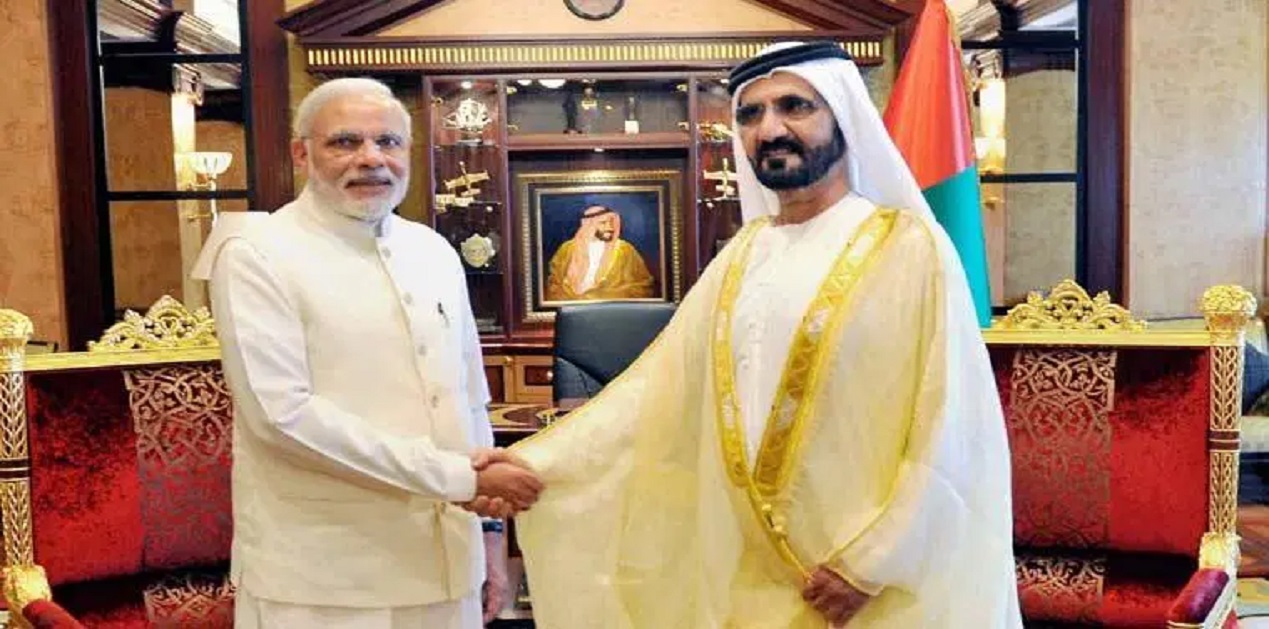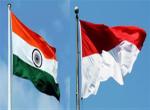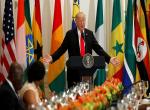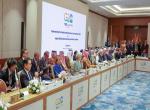Indian Prime Minister Narendra Modi visited the United Arab Emirates (UAE) on 23-24 August 2019 and Bahrain on 24-25 August 2019. The visit by the Indian Prime Minister marks the first visit to the UAE and the West Asian region after coming back to power for a second term in May 2019. Modi, during the last term, had visited UAE on two occasions, i.e. in August 2015 and in February 2018. The Crown Prince of Abu Dhabi Sheikh Mohammed bin Zayed Al Nahyan had visited India in February 2016. The Crown Prince visited India again as the Chief Guest on the Republic day celebration in January 2017.1
India’s geographical proximity with the region along with high energy needs to compliment the burgeoning economy has propelled the Indian government to reorient its strategic axis and a renewed focus towards the Look West policy. In this context, UAE especially has acted as a pivot for the Look West policy and presently has emerged as India’s third-largest trade partner after the US and China. India’s total trade with UAE in the year 2018-2019 was at US$ 59.9 billion with India’s exports to UAE at US$ 30.1 billion and India’s imports from UAE at US$ 29.78 billion.2 With regard to Bahrain, India’s total trade stands at US$ 1.28 billion in 2018-2019 with India’s exports to Bahrain at US$ 742 million and India’s imports from Bahrain at US$ 539 million.3 In terms of diaspora in the two Gulf States, India contributes the largest share with 3.3 million in UAE4 and 350,000 in Bahrain.5
The Indian Prime Minister, during his speech in Abu Dhabi, noted that tolerant UAE and secular India are powerful forces for global peace and harmony. He added that the relationship between both states was not dominated by statistics but stems from a strategic partnership based on shared vision and objectives. The personal friendship between the Indian Prime Minister and the Crown Prince Sheikh Mohammed bin Zayed Al Nahyan is also attributed for the deepening partnership between both states.6 Both leaders discussed bilateral, regional and international issues during the visit.
The visit was crucial in the backdrop of the recent diplomatic tussle between India and Pakistan after the Indian Parliament voted to change the special constitutional provisions in Jammu and Kashmir. India appreciated the positive overtures displayed by UAE that welcomed the recent decision. In fact, the UAE was one of the first states to welcome the steps taken by India. The UAE Ambassador to India, Dr Ahmad Al Banna called the decision an internal matter negating Pakistan’s so-called stake on the dispute in Kashmir. He also asserted that reorganization of states have happened in the past and not unique in the history of India after independence. He believed that the recent steps would help to reduce disparity and improve efficiency. 7
Modi, during his visit, thanked UAE for expressing its support, acknowledging Kashmir dispute as India’s internal matter and sympathizing with India’s overall position.8 Modi also urged the business community in UAE to invest and participate in the Global Investors Summit in Srinagar and Jammu to be held from 12 to 14 October 2019.9 The response of the Indian and the Emirati business community was highly optimistic. The UAE based Lulu Group’s Chairman and Managing Director, Yusuffali MA stated that India is progressing towards becoming a US$ 5 trillion economy and UAE would like to contribute in the effort through trade links, close proximity, Indian diaspora and the personal friendship of the two world leaders. 10
UAE’s inclination to deepen ties with India was further reflected after the Government’s decision to confer the Gulf State’s highest civilian award, i.e. the Order of Zayed, to Prime Minister Modi for his pivotal role in building and strengthening strategic ties between both states. The Indian Ministry of External Affairs inferred the symbolic significance of the award for India which was granted in the birth centenary year of Sheikh Zayed bin Sultan Al Nahyan.11 In Bahrain, Modi was awarded the highest civilian award, King Hamad Order of the Renaissance by the King of Bahrain, Hamad bin Isa Al Khalifa.12 The decision of the two Gulf States to confer the highest civilian awards to the Indian Prime Minister symbolizes not only India’s prominent position in the international order but also dilutes Pakistan’s vitriol against India.
Prime Minister Modi’s visit was also marked by the launch of RuPay card payment system in UAE and signing of MOUs with both Gulf States which is likely to benefit businesses and visitors in India and the Gulf states due to its low transactional rate. RuPay was launched in 2012 by the Reserve Bank of India (RBI) to facilitate an open, domestic and multilateral system of payments. India is highly hopeful that RuPay card could be used extensively at point-of-sale terminals. The RuPay card was launched in Abu Dhabi on 24 August 2019 and India’s National Payments Corporation of India (NPCI) and UAE based Mercury Payments Services signed an MOU to develop a technology interface between the payment platforms. The Indian Ambassador to the UAE, Navdeep Singh Suri during the official launch said that 12 large business outlets have already adopted the RuPay card payment mechanism and three banks namely Emirates NBD, Bank of Baroda and First Abu Dhabi Bank have started issuing cards. The press statement from the Indian Embassy announced that over 175,000 merchant acceptance locations, 5000 ATM and cash access locations within UAE would have access to RuPay card payment mechanism.13 With regard to Bahrain, NPCI signed an agreement with Bahrain based BENEFIT to implement the RuPay card payment mechanism.14
In UAE, the scope of the two-day visit of the Indian Prime Minister was largely limited to the award ceremony, the inauguration of the RuPay system, release of postage stamps to commemorate the 150th birth anniversary of Mahatma Gandhi,15 bilateral exchanges on issues of common concern and review of the already existing agreements in trade, energy and security cooperation. In Bahrain however, three MOUs were signed in the sphere of collaboration in International Solar Alliance (ISA), cultural exchange and space technology between Indian Space Research Organization (ISRO) and National Space Science Agency.16
During Prime Minister’s maiden visit to Bahrain, he met with his Bahraini counterpart, Khalifa Bin Salman Al Khalifa along with Deputy King and Crown Prince Salman bin Hamad bin Isa Al Khalifa to discuss on steps to improve ties and deepen engagement through political exchanges, defence cooperation, education, trade and people to people exchanges. In the joint statement, both states condemned terrorism in all its forms and agreed to increase cooperation in the sphere of security, counter-terrorism, intelligence sharing etc. Both leaders expressed satisfaction with the progress of the Security Dialogue held at regular intervals between deputy National Security Advisors. Both states agreed to work together in the area of energy cooperation, maritime security, regional connectivity projects, UN Security Council reforms etc.17
Modi addressed 15,000 people from the Indian diaspora in Manama and acknowledged their role in Bahrain’s economic development and for promoting warm ties between both states. He urged the Indian community to motivate Bahrainis to visit India and experience the rich history and culture. 18 The Prime Minister also visited the 200-year-old Shreenathji Temple which is the oldest temple in the Gulf region and promised US$ 4.2 million for redevelopment project of the temple. Prime Minister after the visit to the temple expressed his appreciation for the pluralist political culture of Bahrain.19
Pakistan, in response to Modi’s visit to the Persian Gulf and especially to the UAE, has expressed its frustration. Pakistani Senate Chairman Sadiq Sanjrani cancelled his pre-scheduled trip to UAE to protest against its decision to confer the Order of Zayed to the Indian Prime Minister.20 The Foreign Minister Shah Mehmood Qureshi taking a more amiable tone has suggested that international relations are above religious sentiments and both UAE and India have a history of relations and the UAE has right to maintain bilateral ties with any state of its choice.21 The Pakistani Foreign Minister, however, added that he will meet up with the UAE Foreign Minister to discuss the situation in Kashmir and asserted that Pakistan’s position has the support of Turkey, Malaysia and all Islamic states, which is inaccurate. The present development, in fact, suggests that international relations are indeed above religious sentiments and the dynamism in India’s economic, strategic and diplomatic prowess has numbed Pakistan’s diplomatic attack on India’s new Kashmir policy.
The Persian Gulf region presently is under severe turmoil due to the power rivalry between Saudi Arabia and Iran. The US’ unilateral decision to withdraw from the 2015 nuclear deal has further destabilized the region. It has deteriorated the security situation in the Strait of Hormuz which serves as a crucial chokepoint through which 30 percent of global oil supply is navigated. India is closely monitoring the situation and the region is crucial for its energy needs. India is strongly in favour of de-escalation in the region and the recent visit by the Indian Prime Minister can be seen as an attempt to re-invigorate its energy, trade and strategic cooperation with the region. At the same time, the visit has provided India with a strategic mileage in the battle of narrative vis-à-vis Pakistan with regard to the constitutional changes in Jammu and Kashmir.
References:
- Trigunayat, A. “PM Modi’s Middle-East diplomacy: Reinforcing relationship with the Gulf.” Financial Times. August 26, 2019. Accessed August 27, 2019. https://www.financialexpress.com/defence/pm-modis-middle-east-diplomacy-reinforcing-relationship-with-the-gulf/1686564/
- Department of Commerce. “Export Import Data Bank: UAE.” Department of Commerce. August 28 2019. Accessed August 28, 2019. https://commerce-app.gov.in/eidb/iecnt.asp
- Department of Commerce. “Export Import Data Bank: Bahrain.” Department of Commerce. August 28 2019. Accessed August 28, 2019. https://commerce-app.gov.in/eidb/iecnt.asp
- Ministry of External Affairs. “Visit of Foreign Minister of the United Arab Emirates to India (July 7-9, 2019).” Ministry of External Affairs. July 4, 2019. Accessed August 27, 2019. https://mea.gov.in/press-releases.htm?dtl/31540/Visit_of_Foreign_Minister_of_the_United_Arab_Emirates_to_India_July_79_2019
- NDTV. “India's Diversity Is Its Strength: PM Modi To Indian Diaspora In Bahrain.” NDTV. August 25, 2019. Accessed August 26, 2019. https://www.ndtv.com/india-news/prime-minister-narendra-modi-to-indian-diaspora-in-bahrain-indias-diversity-is-its-strength-2089980
- Jacob, A. “Modi visit: Tolerant UAE, secular India.” Khaleej Times. August 24, 2019. Accessed August 27, 2019. https://www.khaleejtimes.com/international/india/modi-visits-uae-tolerant-uae-secular-india--
- Mohan, G. “UAE backs India on Article 370, says Kashmir its internal matter.” India Today. August 6, 2019. Accessed August 26, 2019. https://www.indiatoday.in/india/story/article-370-jammu-kashmir-uae-ambassador-dr-al-banna-1577918-2019-08-06
- Chaudhary, D. R. “Modi thanks UAE for support on Kashmir; seeks investments for Kashmir in UAE & Bahrain.” The Economic Times. August 24, 2019, Accessed August 26, 2019. https://economictimes.indiatimes.com/news/politics-and-nation/modi-thanks-uae-for-support-on-kashmir-seeks-investments-for-kashmir-in-uae-bahrain/articleshow/70821688.cms
- Business Standard. “J-K to host 3-day global investors summit in Srinagar from October 12.” Business Standard. August 13, 2019. Accessed August 25, 2019. https://www.business-standard.com/article/pti-stories/j-k-to-host-investors-meet-from-oct-12-in-srinagar-119081301270_1.html
- India Today. “Modi's upcoming UAE visit another milestone in bilateral strategic partnership: Envoy.” India Today. August 21, 2019. Accessed August 25, 2019. https://www.indiatoday.in/india/story/modi-s-upcoming-uae-visit-another-milestone-in-bilateral-strategic-partnership-envoy-1590061-2019-08-21
- The Economic Times. “UAE confers 'Order of Zayed' to PM Modi.” The Economic Times. August 24, 2019. Accessed August 26, 2019. https://economictimes.indiatimes.com/news/politics-and-nation/uae-confers-order-of-zayed-to-pm-modi/articleshow/70817695.cms?utm_source=contentofinterest&utm_medium=text&utm_campaign=cppst
- Money Control. “PM Modi meets King of Bahrain, conferred 'The King Hamad Order of the Renaissance'.” Money Control. August 25, 2019. Accessed August 26, 2019. https://www.moneycontrol.com/news/india/pm-modi-meets-king-of-bahrain-conferred-the-king-hamad-order-of-the-renaissance-4369451.html
- Sankar, A. “Modi launches India’s RuPay card in UAE.” Khaleej Times. August 25, 2019. Accessed August 25, 2019. https://www.khaleejtimes.com/business/banking-finance/12-major-companies-to-accept-indias-rupay-card-in-uae
- Business Standard. “RuPay card in Bahrain soon: PM Modi.” Business Standard. August 24, 2019. Accessed August 26, 2019. https://www.business-standard.com/article/pti-stories/rupay-card-in-bahrain-soon-pm-modi-119082401129_1.html
- Gulf News. “Postage stamps on Mahatma Gandhi released in UAE by Modi, Sheikh Mohamed Bin Zayed.” Gulf News. August 24, 2019. Accessed August 26, 2019. https://gulfnews.com/world/asia/india/postage-stamps-on-mahatma-gandhi-released-in-uae-by-modi-sheikh-mohamed-bin-zayed-1.1566658538622
- Ministry of External Affairs. “List of MoU/Agreement exchanged during the visit of Prime Minister to Bahrain.” Ministry of External Affairs. August 24, 2019. Accessed August 27, 2019. https://www.mea.gov.in/bilateral-documents.htm?dtl/31764/List+of+MoUAgreement+exchanged+during+the+visit+of+Prime+Minister+to+Bahrain
- Ministry of External Affairs. “India-Bahrain Joint Statement on the Visit of Prime Minister to Bahrain (August 25, 2019).” Ministry of External Affairs. August 25, 2019. Accessed August 27, 2019. https://www.mea.gov.in/bilateral-documents.htm?dtl/31767/IndiaBahrain+Joint+Statement+on+the+Visit+of+Prime+Minister+to+Bahrain+August+25+2019
- Kaushik, M. “PM Modi lauds Indian diaspora in Manama: A look at community’s significant contribution to Bahrain.” Times Now News. August 25, 2019. Accessed August 26, 2019. https://www.timesnownews.com/india/article/pm-modi-wows-indian-diaspora-in-bahrain-a-look-at-community-s-significant-contribution-to-bahrain-s-economy/475429
- India Today. “PM Modi launches $4.2 million redevelopment project of iconic Hindu temple in Bahrain.” India Today. August 25, 2019. Accessed August 26, 2019. https://www.indiatoday.in/india/story/pm-modi-launches-4-2-million-redevelopment-project-of-iconic-hindu-temple-in-bahrain-1591437-2019-08-25
- The Economist Times. “Pak Senate Chairman cancels UAE trip over Modi's visit.” The Economist Times. August 25, 2019. Accessed August 26, 2019. https://economictimes.indiatimes.com/news/international/world-news/pak-senate-chairman-cancels-uae-trip-over-modis-visit/articleshow/70825495.cms
- Khaleej Times. “Pakistan to inform UAE on Kashmir situation soon.” Khaleej Times. August 26, 2019. August 27, 2019. https://www.khaleejtimes.com/international/pakistan/pakistan-reacts-to-india-uae-relations-modis-visit
(The paper is the author’s individual scholastic articulation. The author certifies that the article/paper is original in content, unpublished and it has not been submitted for publication/web upload elsewhere, and that the facts and figures quoted are duly referenced, as needed, and are believed to be correct). (The paper does not necessarily represent the organisational stance... More >>
Image Source: https://images.indianexpress.com/2015/08/modi-uae-l.jpg?w=759&h=422&imflag=true











Post new comment